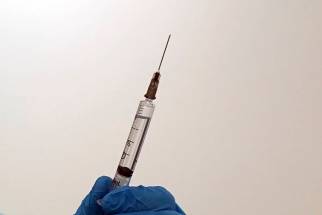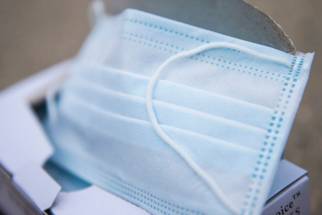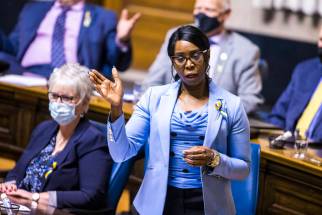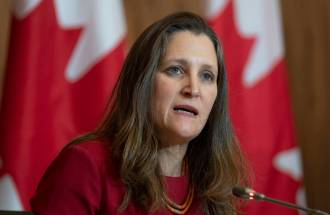Questions, confusion amid Manitoba hesitancy to offer boosters to youth
Read this article for free:
or
Already have an account? Log in here »
To continue reading, please subscribe:
Monthly Digital Subscription
$0 for the first 4 weeks*
- Enjoy unlimited reading on winnipegfreepress.com
- Read the E-Edition, our digital replica newspaper
- Access News Break, our award-winning app
- Play interactive puzzles
*No charge for 4 weeks then price increases to the regular rate of $19.00 plus GST every four weeks. Offer available to new and qualified returning subscribers only. Cancel any time.
Monthly Digital Subscription
$4.75/week*
- Enjoy unlimited reading on winnipegfreepress.com
- Read the E-Edition, our digital replica newspaper
- Access News Break, our award-winning app
- Play interactive puzzles
*Billed as $19 plus GST every four weeks. Cancel any time.
To continue reading, please subscribe:
Add Free Press access to your Brandon Sun subscription for only an additional
$1 for the first 4 weeks*
*Your next subscription payment will increase by $1.00 and you will be charged $16.99 plus GST for four weeks. After four weeks, your payment will increase to $23.99 plus GST every four weeks.
Read unlimited articles for free today:
or
Already have an account? Log in here »
Hey there, time traveller!
This article was published 14/03/2022 (1371 days ago), so information in it may no longer be current.
Lindsay Wright has considered driving her teenage daughter across borders — provincial and international — to get her a booster shot against COVID-19.
Wright is immunocompromised, and her husband is a nurse. But pharmacies in Manitoba have told Wright her 13-year-old daughter couldn’t get a third dose because she doesn’t qualify under the province’s current eligibility requirements.
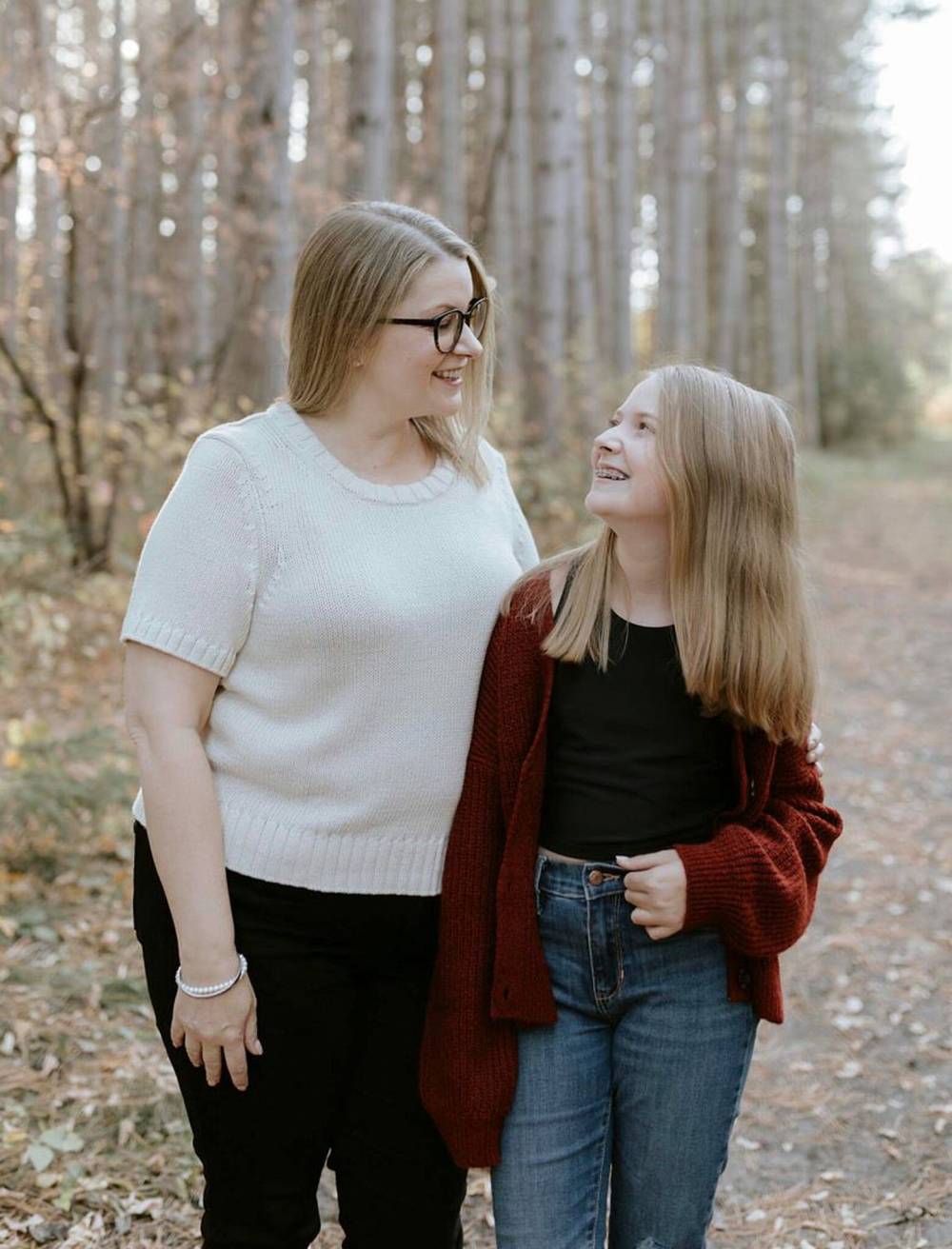
Sites in Kenora, Ont., Wright said, were out of Pfizer but said they’d give the teen a booster if they make the journey. The family has even looked into going to North Dakota.
“I know we have vaccines, and we have appointments, and it’s been nine months since many of these kids had their second doses,” Wright told the Free Press on Monday. “I don’t know why we’re not doing everything we can to try and protect them in this next phase of the pandemic.”
The province has pointed to guidance from the National Advisory Committee on Immunization (which informs the Public Health Agency of Canada) on the reasoning behind its protocol for giving booster shots to 12- to 17-year-olds.
The only Manitoba adolescents eligible to receive a booster under this guidance are those with a list of underlying medical conditions that put them at severe risk for COVID-19, youth living in group settings (such as shelters and correctional facilities), and youth in racialized or marginalized communities disproportionately affected by COVID-19.
Underlying conditions listed include cancer, diabetes, Down syndrome, and substance use disorders.
If the province has Pfizer doses to spare, Wright said, they should be available to anyone who wants their child to receive it — especially considering extenuating circumstances (like her and her husband’s) haven’t been taken into account and the province has decided to lift all public health restrictions before giving all youth the opportunity to get a third shot.
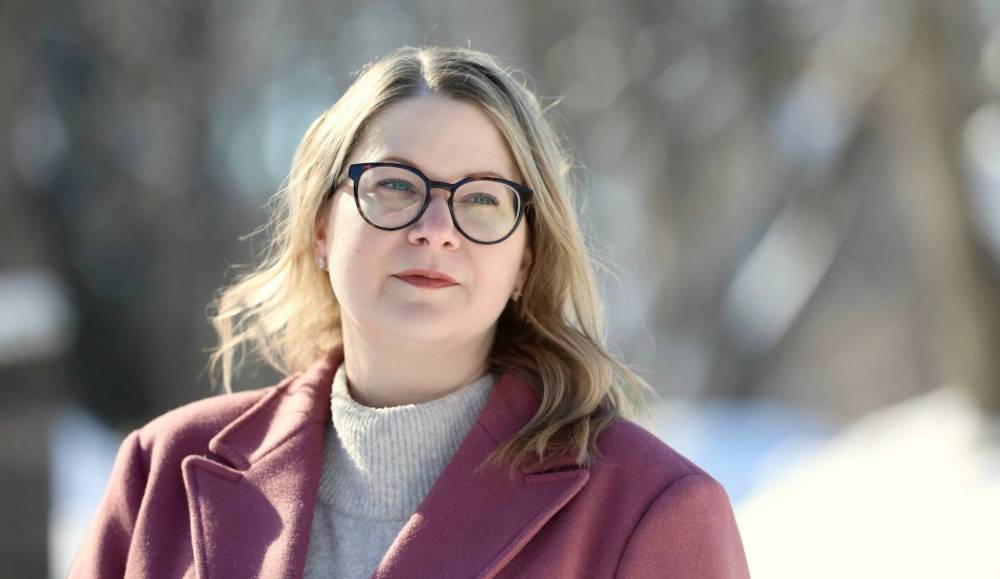
As of Tuesday, the province has dropped its mask use mandate for public spaces.
“I don’t know how my daughter’s supposed to sit in class and learn math tomorrow while she’s worried about getting sick and bringing COVID home to me. And I don’t want that for her, I don’t want her to carry that,” Wright said.
“I get that the government has given up here, but stop blocking me from being able to protect my family.”
The decision to follow the NACI recommendation was based on evidence, not supply, Manitoba vaccine implementation task force lead Dr. Joss Reimer said.
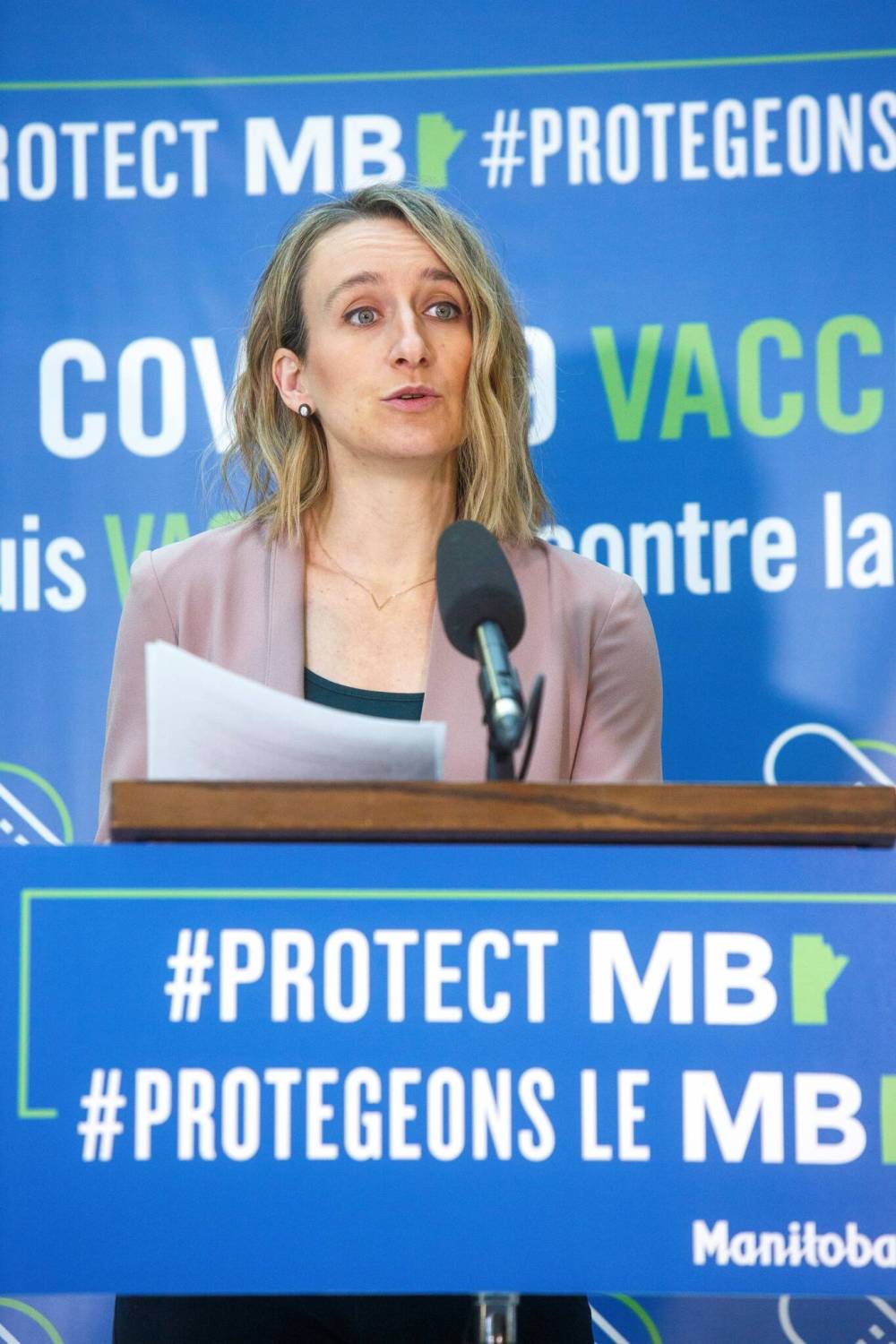
“At this point, there is no clear evidence demonstrating a benefit for all teens to receive a third dose of the vaccine. Given that youth are already at lower risk of severe outcomes and that protection against severe outcomes remains high after two doses of the vaccine for people who are young and healthy, NACI has not given a global recommendation to move forward with booster doses for youth at this time,” Reimer said in an email.
“It is not a matter of supply; it is clinical guidance weighing the risks and benefits of the vaccine for this age group.”
She went on to say that anyone who doesn’t fit into a higher-risk category but wants their child to have a booster can discuss it with their doctor.
Alberta, B.C., New Brunswick, Nova Scotia, Nunavut, Ontario, Prince Edward Island, Quebec, Saskatchewan and Yukon all have opened up booster appointments to anyone 12 and older, after a period of around six months since their second dose.
Ontario and New Brunswick’s requirements allow 12- to 17-year-olds who don’t fall under the NACI recommendations to get boosted with a signed informed consent form. Northwest Territories has opened its booster eligibility to anyone 16 and older.
Only Newfoundland has taken the same stance as Manitoba — which has confused parents such as Jocelyn Cordeiro, whose 12-year-old son has asthma.
“It’s odd to me that in other provinces that it doesn’t seem to be an issue, but for some reason, in Manitoba, they’re really hesitant about it,” she said.
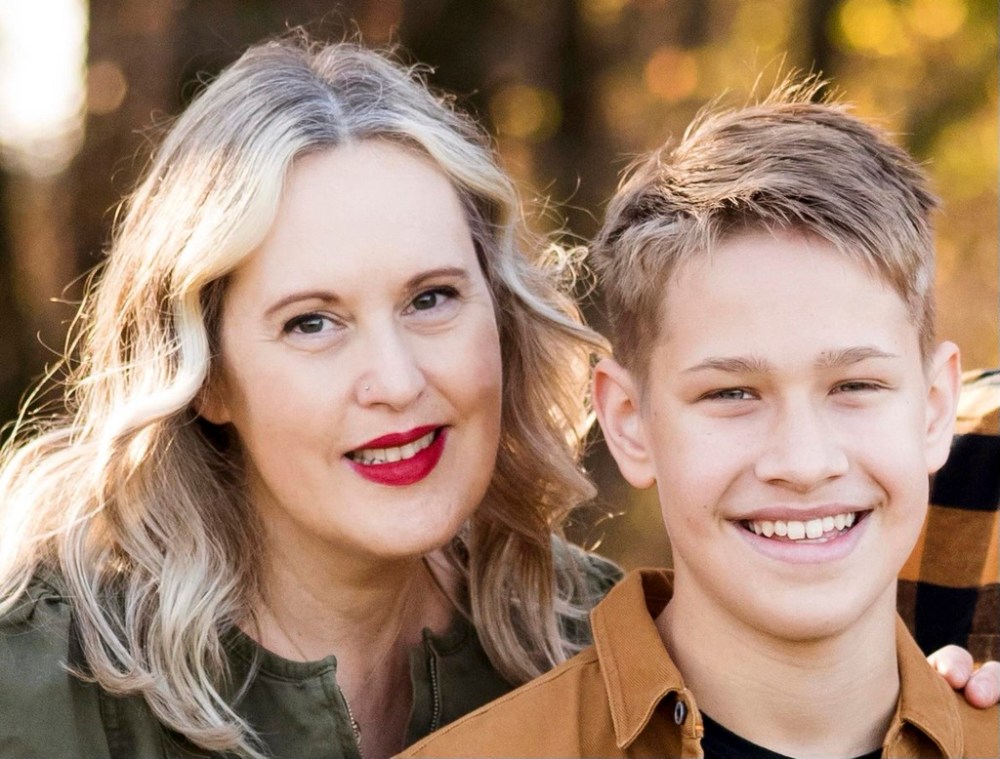
Her son did get a booster – but not without uncertainty he’d qualify as having a high risk factor under the NACI’s recommendations (which lists “chronic lung diseases, including uncontrolled asthma” as an accepted condition).
Cordeiro said her son’s asthma isn’t considered uncontrolled. But they walked into a Sobeys pharmacy Sunday and got him a shot.
“The criteria is not black-and-white, it’s kind of vague. The way it’s written, there’s no hard criteria in there that has to be,” she said.
“But it was really simple, I was actually shocked at how simple it was, and we probably would have done it a month ago if I’d known it was so simple.”
Manitoba pharmacist Tim Smith said the industry has been getting calls about youth eligibility for boosters, and the questions mirror those when only some adults were eligible.
“When only certain populations, age groups and medical conditions are eligible, it hasn’t always been easy or clear for the general public, or, in fact, health-care professionals to stay on top of rapidly changing criteria.” – Pharmacist Tim Smith
“When only certain populations, age groups and medical conditions are eligible, it hasn’t always been easy or clear for the general public, or, in fact, health-care professionals to stay on top of rapidly changing criteria,” said Smith, who serves as a pharmacy practice adviser with Pharmacists Manitoba.
He said it’s possible for one pharmacist to decide a young person is eligible for a booster, while another might not, because some of the requirements have a grey area that rely on the clinical judgement of the pharmacist delivering the dose.
“In some of those areas, it might seem maybe wishy-washy, or a client may not understand why one professional would make one determination and another might make another, but reasonable professionals could come to different conclusions under some circumstances,” he said.
malak.abas@freepress.mb.ca

Our newsroom depends on a growing audience of readers to power our journalism. If you are not a paid reader, please consider becoming a subscriber.
Our newsroom depends on its audience of readers to power our journalism. Thank you for your support.
History
Updated on Monday, March 14, 2022 10:49 PM CDT: Fixes typo.
Updated on Tuesday, March 15, 2022 2:24 PM CDT: adds detail that parents can talk to their doctor


